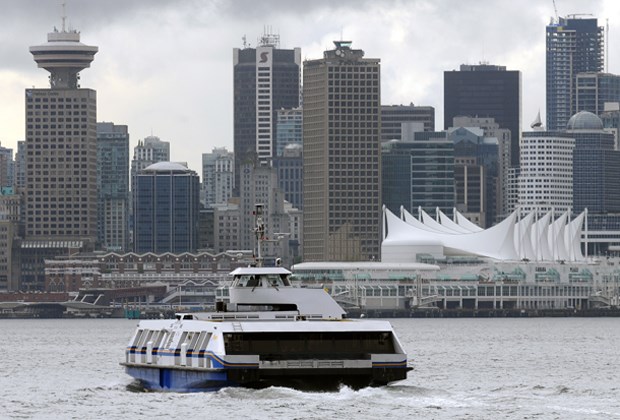Lower Mainland residents, including those on the North Shore, will be asked whether they support a 0.5 per cent increase in the Provincial Sales Tax within the region to support $7.5 billion in transit improvements over the next 10 years.
The mayors' council on transportation voted Thursday to put that question in a mail-in referendum ballot seeking voters' approval for a new source of transportation funding.
The mayors opted to ask for a regional increase to the existing seven per cent sales tax over other revenue sources including vehicle levies and carbon taxes, saying it would provide the fairest, most affordable and steady source of cash for TransLink expansion.
If passed in a vote this spring, the sales tax hike would become the first regional sales tax in the country, although such taxes are relatively common in the U.S. he tax hike is expected to cost the average household about $128 per year, while the poorest households would pay about $50 a year more, according to the mayors' council. T Not all political leaders were in favour to taking a new sales tax to the public. West Vancouver Mayor Michael Smith joined Burnaby Mayor Derek Corrigan in voting against it, pointing to wasteful spending by TransLink and a flawed governance model as reasons to reject the proposal.
"How can I vote yes when I look at what's gone on in the past three years?" he said. "It's something I can't support. The blunt basic reality is the public is not being well served, and has not been well served on the transit file" Both North Vancouver mayors voted in favour of taking the referendum question to the public.
City of North Vancouver Mayor Darrell Mussatto said while he's not a fan of referendums, improving the transit system is critical for the city. Increasing growth means, "We have to have the accompanying public transportation system."
Mussatto said sales tax has been used to fund transportation in other areas of North America. "I think it's the most publicly accepted," he said.
District of North Vancouver Mayor and Mayors Council Chairman Richard Walton also voted in favour of taking the sales tax increase to the public.
"The challenge is what is really fair," he said. Walton said while he acknowledges TransLink's governance problems, if a new source of funding can't be found: "There is no Plan B at all," which would leave the region - and the estimated one million new residents who will come here in the next 10 years - struggling.
Walton said regional mayors have already rejected a further property tax hit.
He said business groups like the B.C. Chamber of Commerce are supporting the question because they understand the impact of gridlock on the economy.
Smith voted against the tax question, saying he's troubled by the waste and inefficiencies at TransLink that municipal leaders have no control over. "The harsh wind of economic reality that has blown through the private sector should blow through TransLink," he said.
Smith added he's concerned the federal and provincial governments - which are being asked to put up about $1.5 billion each toward the plan - haven't committed to the funding.
If accepted by the provincial government, the referendum on the regional sales tax hike would be held through a mail-in vote in March and April. he referendum question will include a general description of some of the transit improvements TransLink wants to fund with the cash - including improved SeaBus service and more frequent bus service on the North Shore.



